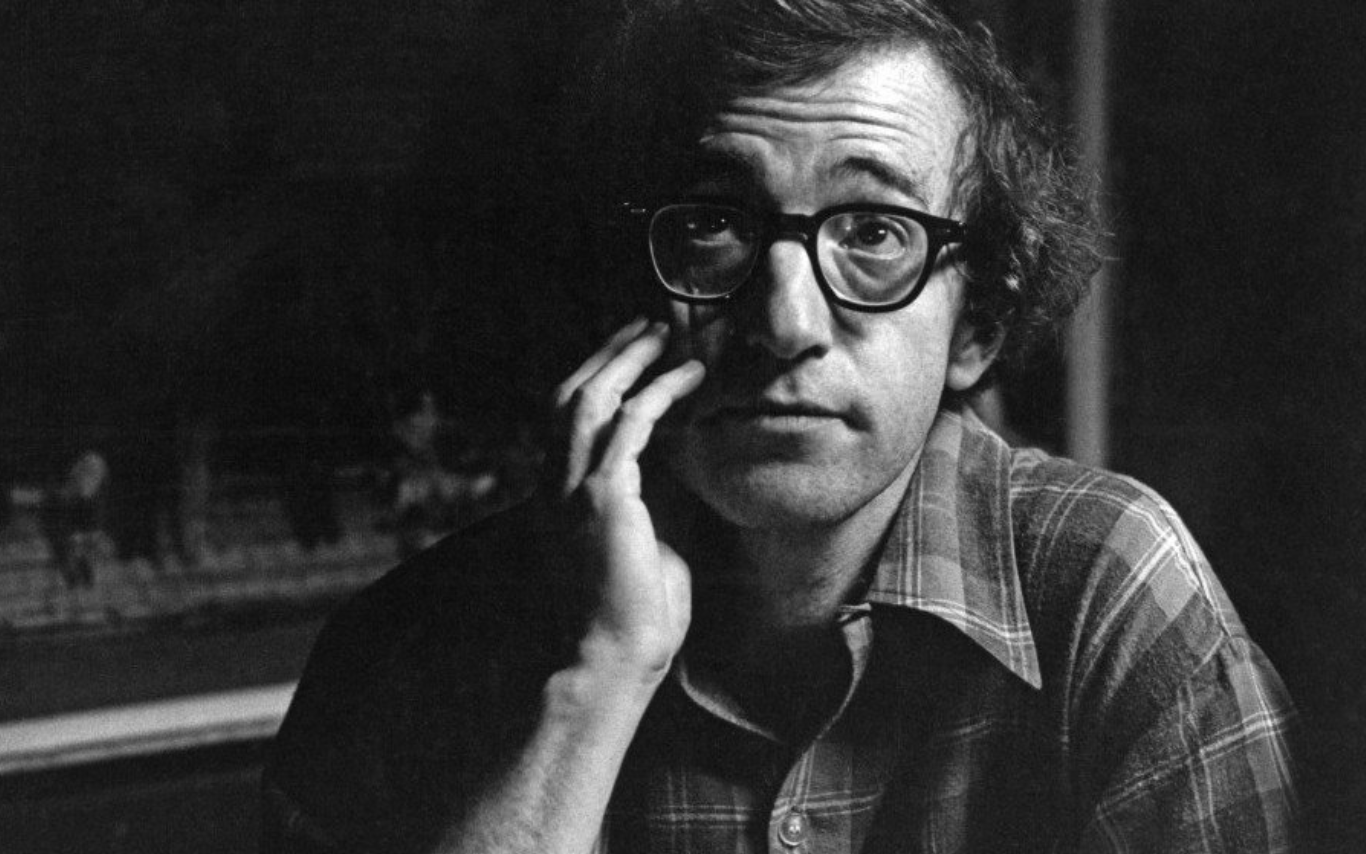Vulture‘s Mark Harris has written a pissy, dismissive, incurious review of Woody Allen‘s “Apropos of Nothing.” He’s certainly entitled to his opinion, but reading the piece gave me stomach acid. Whereas I felt no adverse stomach sensations and experienced mostly pleasure while reading Allen’s book, especially the portion that covers his Brooklyn childhood and teen years.
Seriously — the first 80 or 90 pages of “Apropos of Nothing” are luscious. They’ll put a smile on your face. And Harris more or less pisses on them, in part because Allen delivers the same kind of riff that he used in Broadway Danny Rose, when Allen’s titular character describes a certain female cousin looking “like something you’d find in a live bait store.” Tribal self-loathing, par for the course, etc.
As I wrote on 3.29, Allen has a voice and a style and a certain shticky attitude, and much of the book is like listening to some streetcorner wise guy tell a story from a bar stool. And I’m sorry but unless you’re an Inspector Javert for the #MeToo community, “Apropos of Nothing” is an engaging read. Really. It’s easy to process. It flows right along. And it’s funny and cuts right through for the most part.
Most of Harris’s review makes a case that “Apropos of Nothing” isn’t the deepest or the most probing piece of literary self-excavation or self-examination ever published, which is true. But I weathered the mundane or underwhelming or overly glib parts. Harris, on the other hand, doesn’t like the fact that Allen is who he is, and that his voice is his voice.
“If you can read “Apropos of Nothing” with that in mind, “you’ll have a better-than-decent time with it,” I wrote. “And by that I mean diverting, chuckly, passable, fascinating, occasionally hilarious and nutritional as far as it goes.”
There are two portions of Harris’s review that made me fall over backwards in my chair.
“I understand those moviegoers who have no desire ever to watch or rewatch another Woody Allen movie,” Harris writes.
He does? One of our finest film historians and a highly perceptive film critic “understands” the nonsensical position of Woody haters, which is based on nothing but a blind belief that Dylan Farrow‘s account of what may or may not have happened on 8.4.92 is 100% reliable? There is nothing in terms of evidence or professional opinion (not to mention the account posted by Moses Farrow) that backs up Dylan’s account, but Harris nonetheless “understands” (seems to have no major argument with, feels a certain allegiance with) their ignorance. Shafts of light piercing through the clouds!
“But as a film historian, I can’t remove [Allen’s] films from my cultural vista,” Harris adds, “because they’re not only his. [For] Annie Hall is also an essential part of Diane Keaton’s filmography, and of Gordon Willis’s, and of Colleen Dewhurst’s, and of Jewish filmmaking, and of New York romantic comedy.”
In other words, if it weren’t for the charms of Annie Hall plus the creative participations of Keaton, Willis and Dewhurst, Harris might be tempted to remove Allen’s films from his “cultural vista”? I’m not going to bellow like a buffalo and slap my forehead as I list all the great and near-great films Allen has directed and written and acted in. But I will say this: I’m stunned.
Harris excerpt: “Dwight Garner, who artfully tweezed this book for the New York Times, wrote that he believes that ‘the less you’ve read about this case, the easier it is to render judgment on it.’ I have little to add to that except how deeply I wish I had read less.”
Harris seems to be saying that he hasn’t read Moses Farrow’s history of what happened between Woody, Mia and Dylan. If he has he certainly hasn’t mentioned this in the review. If he hasn’t read the essay, Harris should know that most of the details and accusations against Mia in Woody’s book are backed up by Moses, who by the way is a professional marriage and family therapist.
There’s a passage in Allen’s book that “stopped me in my tracks”, Harris writes. It says that “[Mia] didn’t like raising the kids and didn’t really look after them. It is no wonder that two adopted children would be suicides. A third would contemplate it, and one lovely daughter who struggled with being HIV-positive into her thirties was left by Mia to die alone of AIDS in a hospital on Christmas morning.”
But if memory serves this is all in Moses’ essay. Is Harris implying that Moses’ perspective and viewpoint aren’t worth considering? If he’s not implying this, why the hell didn’t he at least mention that Moses and Woody are on the same page?
Repeating: Expressing disgust at a candid, well-written (if occasionally redundant and overly gracious in terms of costars and collaborators) memoir by one of the most acclaimed film artists of our time, and in so doing signaling lockstep solidarity with #MeToo cancelling, is not a becoming profile, to put it mildly.

